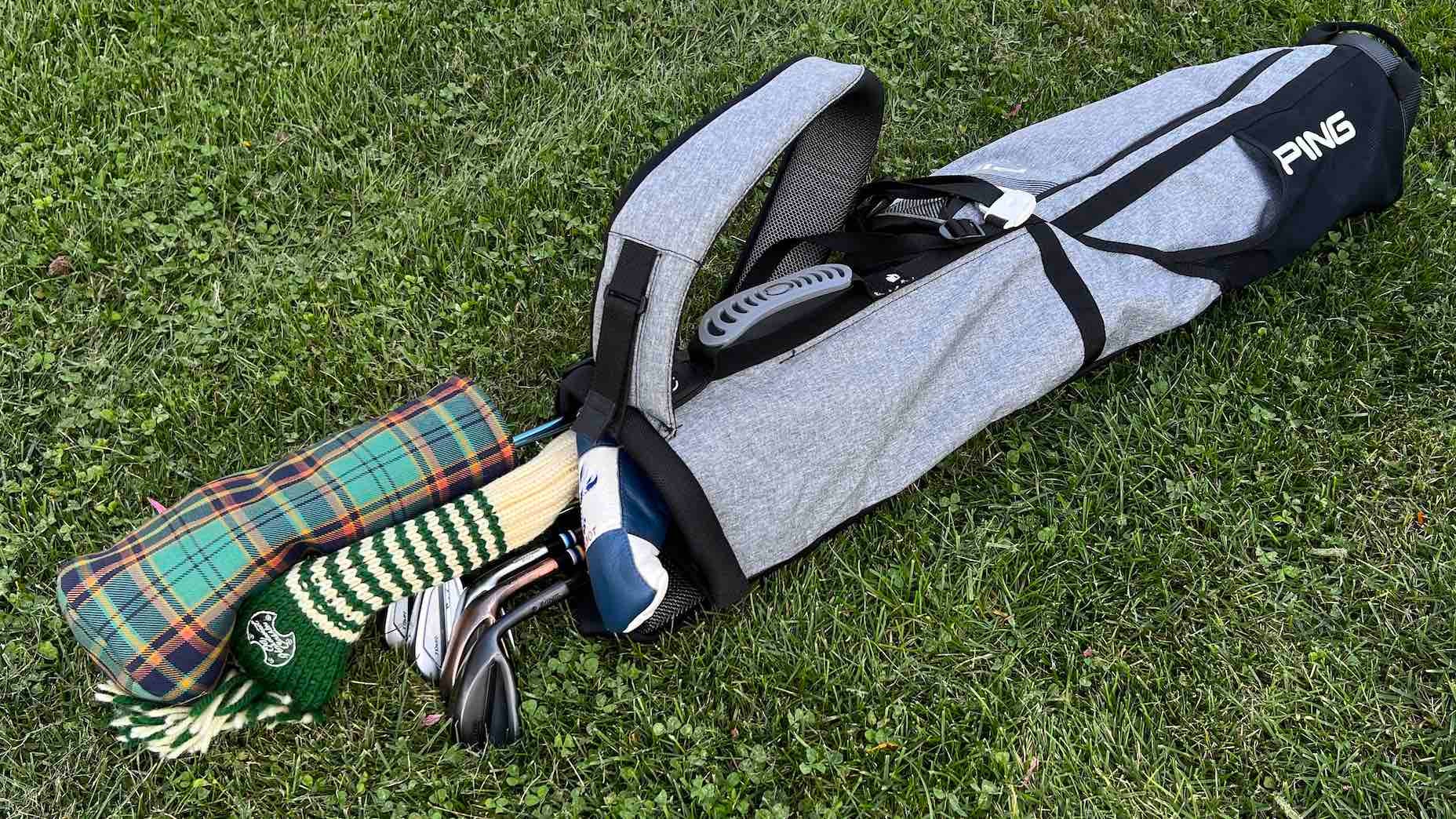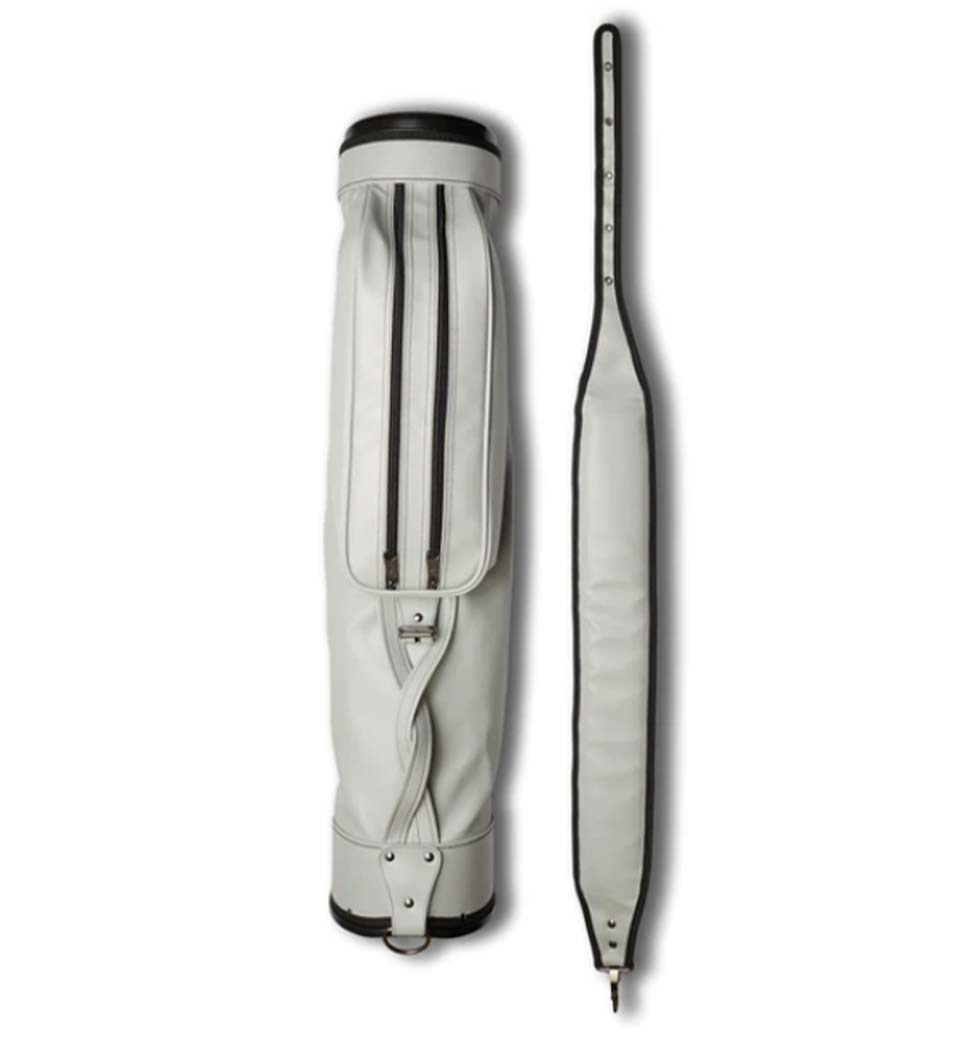Narin An made four straight birdies around the turn and finished with an 8-under 64 Thursday for a one-shot lead in the CME Group Tour Championship.
Can using a half set of clubs improve your game and encourage better shotmaking?


Using a half set encourages creativity
Ryan Barath
I recently covered how to build a beginner set of clubs, and one of the main questions that came from talking about simplifying the club selection process for beginners was “what about a half set?” — well, I’m glad you asked.
Half sets offer a great opportunity for beginners to enjoy the game, thanks in part to an easier understanding of what clubs to hit where around the course and figuring out shot distances. They can also be easier on the wallet, and thanks to the process of elimination, are also lighter to carry when walking the course.
What is a Half Set?
As the name suggests, a half set consists of 8 or fewer clubs. Although it’s technically not quite half of the 14 allowable clubs under the rules of golf, 7 full-swing clubs and a putter is pretty close.
If you are a real hardcore minimalist, carrying 7 clubs or less can encourage a lot of imagination when working your way around the course, and for a beginner, as mentioned above, it makes club selection much more straightforward.
All of our market picks are independently selected and curated by the editorial team. If you buy a linked product, GOLF.COM may earn a fee. Pricing may vary.
Jones Original Carry Series
Jones’ Original Carry Series bag represents the perfect example of the company tagline: “simplify and golf.” This bag is no frills in the most stylish way possible. A two-way divider, a pair of pockets and a single strap combine for a design that weighs less than many of its lightweight counterparts. For the old-school golfer, you couldn’t do much better than this.
Which clubs should be in a half set?

A driver off the tee offers more forgiveness.
Getty Images
The one club your do not want to give up when putting together a half set is your driver, especially considering the size and forgiveness offered off the tee. Don’t just take my word for it, the stats have proven it’s beneficial to hit driver vs. a 3-wood because it’s longer and misses are better too.
Simple rules for building your half set

A half set in a Sunday bag makes walking a breeze
Ryan Barath
Be comfortable — Since you’re going to have a driver and a putter in the bag no matter what, you need to fill enough gaps to allow you to feel comfortable out on the course. In most cases, hazards are in front of greens so it’s best to have clubs you are going to miss long with under normal circumstances rather than forcing yourself to make harder swings.
Its okay to pick favorites — Favorite clubs are favorite clubs for a reason and even if they don’t quite fit into the gapping you are trying to achieve, having a “go-to” club is great for potential layup and approach shots.
Know your gapping — It’s good to remember that most iron sets have 4-5 degrees between each club at the bottom of the bag (PW-7 iron), but get tighter as you move into the longer clubs. Although it might seem like the easy choice, grabbing all even or all odd clubs might still leave you with big distance gaps or feeling stuck on par-3s. Instead, think about the shots you are going to hit into greens around the course and pick accordingly.
The Verdict
Without knowing any intimate details of any golfer or their game, this is how I would build the ideal half set: Driver, 5/7-wood, 5, 7, 9-iron, gap wedge, sand wedge, putter.
So whether you’re a beginner looking to build your first set, or an advanced golfer looking to work on your shotmaking, try taking fewer clubs to the course for more fun.
Want to overhaul your bag for 2022? Find a fitting location near you at GOLF’s affiliate company True Spec Golf. For more on the latest gear news and information, check out our latest Fully Equipped podcast below!


